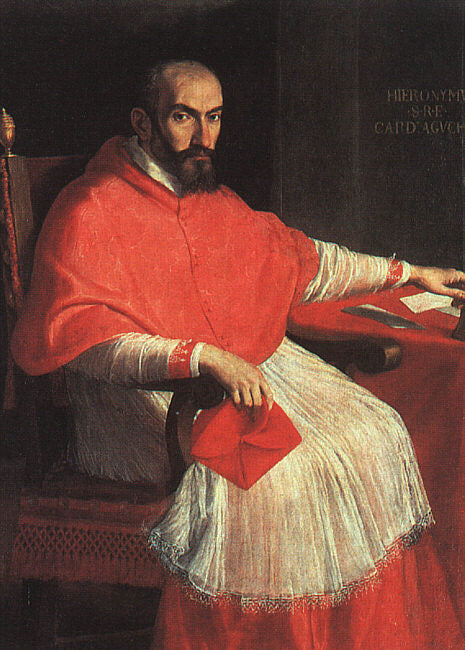Description
The Portrait of Cardinal Agucchi, painted by Domenichino in the 17th century, is a work that draws attention for its Italian Baroque artistic style, characterized by drama and emotion in the representations. The composition of the painting is very careful, with the central character, the cardinal, in a dominant position and surrounded by symbolic elements that reinforce his power and role in the Church.
Color is also a prominent aspect in this work, with a palette of rich, warm tones creating an atmosphere of luxury and opulence. The details on the cardinal's clothing and the decorative elements in the background are painted with great precision and realism, demonstrating the artist's technical skill.
The story behind the painting is also interesting, as it was commissioned by Cardinal Agucchi himself as an official portrait for his residence in Rome. However, the work was stolen by French troops during the invasion of Italy in the 19th century and taken to France, where it remained in private hands for many years. Finally, in 2009, the painting was returned to Italy and is now part of the collection of the Barberini Palace in Rome.
A little known aspect about this work is that Domenichino included his own image in the painting, in the figure of the man holding the book behind the cardinal. This self-representation is an example of the common practice in the Italian Baroque of including the artist in his works as a way of asserting his authority and importance within the art world.
In summary, the Portrait of Cardinal Agucchi is a work of great importance in the history of Italian and European art, which stands out for its Baroque style, its careful composition and its rich color palette. The story behind the painting and little-known details about the work make it an object of fascination for lovers of art and history.

